LTA Velo Preamp and headphone amplifier by John Hoffman
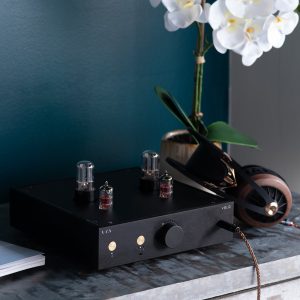
 My reference tube amplifier is the Audio Note Kit (ANK) EL34. I built it as an integrated amplifier but wanted to hear it without the preamplifier board, volume pot, and gain produced by the 12AU7 tube buffer. With the help of Brian Smith, owner of ANK, I removed the preamplifier section and volume pot, converting it into a power amp. I love the sound of this amplifier. It produces a balance of natural-sounding mid-range with a resolution that is realistic and engaging. The amp is neither overly warm and muddy nor harsh and fatiguing.
My reference tube amplifier is the Audio Note Kit (ANK) EL34. I built it as an integrated amplifier but wanted to hear it without the preamplifier board, volume pot, and gain produced by the 12AU7 tube buffer. With the help of Brian Smith, owner of ANK, I removed the preamplifier section and volume pot, converting it into a power amp. I love the sound of this amplifier. It produces a balance of natural-sounding mid-range with a resolution that is realistic and engaging. The amp is neither overly warm and muddy nor harsh and fatiguing.
With the conversion complete, I needed a preamp to pair it with my newly created power amp. Terry London, a fellow Stereo Times senior reviewer and mentor, suggested I try a Linear Tube Audio (LTA) preamplifier, which is tube-based but would not add the warmth that many traditional tube-based line stages add. LTA products use ZOTOL technology, known for its pristine tonality, speed, transparency, and dynamics. ZOTL is David Berning’s design inspired by the original OTL (output transformer-less) circuit. See their website for a full explanation of ZOTL technology.
 Since LTA offers three preamplifiers, I called to get information on the differences between the models. LTA founder Mark Schneider answered the phone and said he had a new Preamp/Headphone amplifier titled “Velo,” “French for bicycle. The name Velo is a tribute to David Berning’s passion for cycling.
Since LTA offers three preamplifiers, I called to get information on the differences between the models. LTA founder Mark Schneider answered the phone and said he had a new Preamp/Headphone amplifier titled “Velo,” “French for bicycle. The name Velo is a tribute to David Berning’s passion for cycling.
Mark explained that LTA created an improved circuit design for the Velo and, to my surprise, said the Velo sounded as good as the more expensive MZ3 model. With honesty like this and a 14-day in-home trial period, I made the purchase. LTA is an American company that makes its products in Takoma Park, Maryland. It took about four weeks to get the Velo.
LTA also produces a stand-alone linear power supply that can be used on most components that take an external power supply. This is an upgrade choice when purchasing the Velo and costs $600. Mark said it improves the sound significantly, especially by adding a blacker background. I was more than skeptical that a power supply could make a sonic difference, but I chose the upgrade. Even if you upgrade, the standard switching power supply comes with the Velo. The Velo with the upgraded power supply cost $2,700.
A note about the shipping material and the box: Look at this very cool LTA logo on the foam padding material. I run a warehouse shipping books, so if you are not into shipping and packing material, let me inform you that this is A+ protection and branding. I am thinking of hanging it on the wall as a room treatment.
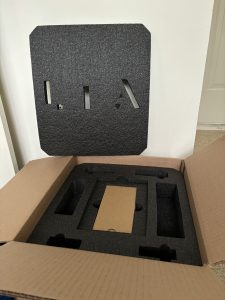
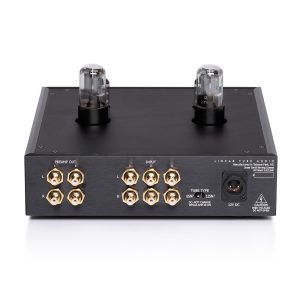
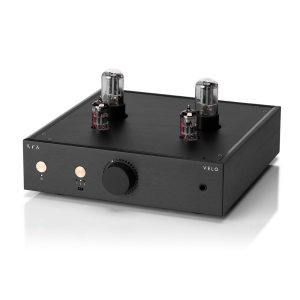
 The Velo includes new JJ 12AU7 and New Old Stock (NOS) Fulton/Nevs 6SN7 tubes. The device has a soft start for tube longevity and a stepped attenuator volume control. When you turn on the Velo, it takes a second or more to warm up. When ready, the Velo makes several audible clicks.
The Velo includes new JJ 12AU7 and New Old Stock (NOS) Fulton/Nevs 6SN7 tubes. The device has a soft start for tube longevity and a stepped attenuator volume control. When you turn on the Velo, it takes a second or more to warm up. When ready, the Velo makes several audible clicks.
The Velo is an example of great industrial design in my aesthetic. The tubes are visible, which I like, and the LTA logo is understated. There are two brass buttons on the front: one turns the device on, and the other is the input selector. The Velo circuit design is push-pull and has three single-ended inputs and two single-ended outputs in the back. There is also a connection for the power supply.
Sound
I played the Velo on my reference ANK power amplifier, and the two had excellent synergy. The balance of natural-sounding mid-range and resolution produced by the ANK was enhanced with pristine tonality, speed, transparency, and dynamics from the Velo. The Velo opened the soundstage in depth and width and dramatically increased the ability to hear the placement of instruments in the soundstage. Micro details and spatial cues also became more accessible to hear. The Velo did this without making any genre of music sound analytical or bright. I also found the above true when I paired the Velo with my solid-state SPL S1200 power amplifier.
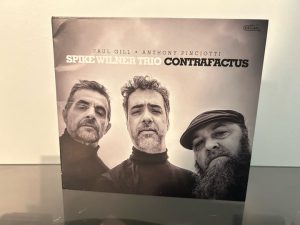 I installed another set of NOS 12AU7 and 6SN7 tubes to see how that would change the sound. I heard the tone warm a bit, but the difference was subtle. The tubes included with the Velo sound excellent. I love Jazz Pianist Spike Wilner and used his well-recorded track At First Blush on the album “Contrafactus” to hear what the Velo would do with a jazz trio. This track opens with Wilner playing the same key on the piano before the band jumps in. With the Velo, I could hear the dynamic change in the note as Wilner changed the pressure on the piano key. I have never heard this dynamic change clearer than with the Velo. The other preamps I have had in my system blurred this subtle change. The Velo sounded so realistic that it was as if the piano was in the room. I could hear the vibration of the notes in the body of the piano.
I installed another set of NOS 12AU7 and 6SN7 tubes to see how that would change the sound. I heard the tone warm a bit, but the difference was subtle. The tubes included with the Velo sound excellent. I love Jazz Pianist Spike Wilner and used his well-recorded track At First Blush on the album “Contrafactus” to hear what the Velo would do with a jazz trio. This track opens with Wilner playing the same key on the piano before the band jumps in. With the Velo, I could hear the dynamic change in the note as Wilner changed the pressure on the piano key. I have never heard this dynamic change clearer than with the Velo. The other preamps I have had in my system blurred this subtle change. The Velo sounded so realistic that it was as if the piano was in the room. I could hear the vibration of the notes in the body of the piano.
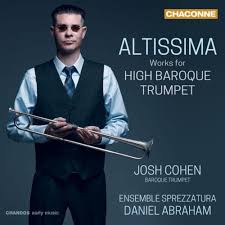 Next up was Josh Cohen, playing a baroque trumpet on the album “Altissima: Works for High Baroque Trumpet 2023.” I used the first track, Abblasen, a 35-second solo trumpet piece, to hear how natural the tonality of his trumpet sounds. With some equipment, a solo trumpet can become bright and harsh. With the Velo, the trumpet sounded natural in tone and timbre, with energetic dynamics and no harshness.
Next up was Josh Cohen, playing a baroque trumpet on the album “Altissima: Works for High Baroque Trumpet 2023.” I used the first track, Abblasen, a 35-second solo trumpet piece, to hear how natural the tonality of his trumpet sounds. With some equipment, a solo trumpet can become bright and harsh. With the Velo, the trumpet sounded natural in tone and timbre, with energetic dynamics and no harshness.
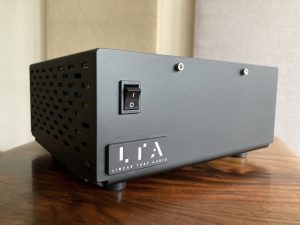
Power Supply
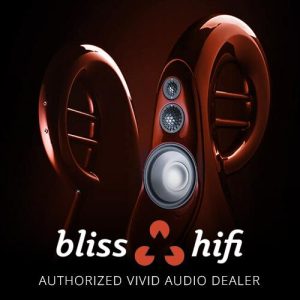 All the above listening was done with the upgraded linear power supply. When I switched to the standard switching mode power supply, the difference in sound was apparent and not to my liking. The delicate balance between resolution and warmth that I was hearing with the linear power supply was replaced with a less resolving warmer sound. I was shocked at how much a power supply can affect the sound. The power supply upgrade is a next-level improvement for the Velo, more so than the NOS tubes. I highly recommend this upgrade, and since you get both power supplies when you upgrade, you can do this fun test yourself.
All the above listening was done with the upgraded linear power supply. When I switched to the standard switching mode power supply, the difference in sound was apparent and not to my liking. The delicate balance between resolution and warmth that I was hearing with the linear power supply was replaced with a less resolving warmer sound. I was shocked at how much a power supply can affect the sound. The power supply upgrade is a next-level improvement for the Velo, more so than the NOS tubes. I highly recommend this upgrade, and since you get both power supplies when you upgrade, you can do this fun test yourself.
Conclusion
The Velo did precisely what I hoped it would do, so it is staying in my system. The open soundstage, increase in clarity, and imaging are absolutely engaging. The Velo presents music full of nuance and detail with pinpoint instrument separation and placement. The highs are airy and extended; the midrange is holographic and natural, with beautiful tone, color, and texture. The bass is accurate and taut, never bloated or fuzzy. The Velo combines all the above qualities to make music realistic without altering or adding to the sound of your amplification.
The optional linear power supply is well worth the $600 and is crucial to hearing what this preamp is capable of. The switching power supply was good but not at the same performance level as the upgraded linear power supply. I highly recommend the Velo with the upgraded power supply.

Specifications:
Price: $2,199
Class A Push-pull Circuit: Precision for headphones and as a preamp
ZOTL Output Stage: Patented design brings detail and clarity without excessive warmth and no intermodulation distortion
Dual Preamp Outputs: Parallel low-impedance outputs can easily drive a power amplifier and subwoofer
Relay Stepped Attenuator: Precise, closely matched volume control
Remote Control: Machined aluminum LTA remote
Optional LPS+: LTA’s world-class linear power supply enhances dynamics and overall sonic quality
Enhanced ZOTL Circuit: Enhanced speed, reduced noise, and shortened signal paths for pure audio clarity
Easy Tube Swapping: Fully visible tubes and simple toggle switch for using either 6SN7 or 12SN7 output tubes
Efficient Design: Efficient assembly, compact size, and high-quality components
Low Maintenance: Long tube life and no fuses to replace
User-Friendly: Independent headphone and preamp volume level memory
Made in the USA: Designed and built in our Takoma Park, MD, workshop
John’s Associated Equipment
Streamer: Lumin U2 Mini
Digital Cable: Jenna Labs Haldi digital cable https://www.jenalabs.com/interconnects/interconnect-digital-23.html
DAC: Reimyo DAP-999EX
Preamplifier: LTA Velo and SPL Director
Amplifier: Audio Note Kit EL-34
Amplifier: Sound Performance Labs (SPL) S1200
Speakers: Devore O/96
Speaker Cables: Black Cat Copper Tone
One thought on "LTA Velo Preamp and headphone amplifier by John Hoffman"
Leave a Reply
Stereo Times Masthead
Publisher/Founder
Clement Perry
Editor
Dave Thomas
Senior Editors
Frank Alles, Mike Girardi, Russell Lichter, Terry London, Moreno Mitchell, Paul Szabady, Bill Wells, Mike Wright, and Stephen Yan,
Current Contributors
David Abramson, Tim Barrall, Dave Allison, Ron Cook, Lewis Dardick, John Hoffman, Dan Secula, Don Shaulis, Greg Simmons, Eric Teh, Greg Voth, Richard Willie, Ed Van Winkle, Rob Dockery, Richard Doron, and Daveed Turek
Site Management Clement Perry
Ad Designer: Martin Perry


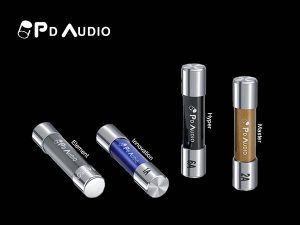
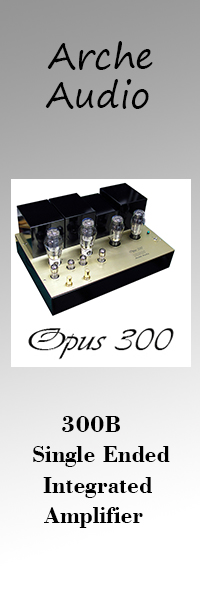
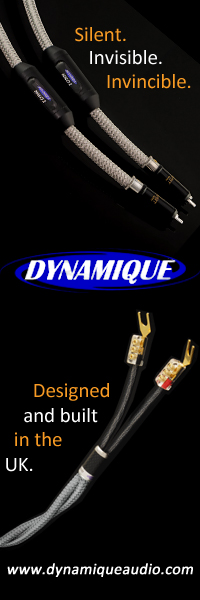
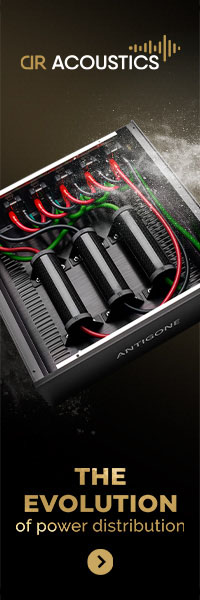
“The Velo did precisely what I hoped it would do, so it is staying in my system.”
Reviewer proceeds to list it on US Audio Mart a couple months later.
LOL